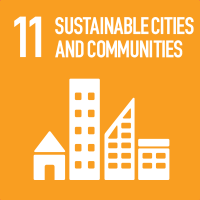Studying at the University of Verona
Here you can find information on the organisational aspects of the Programme, lecture timetables, learning activities and useful contact details for your time at the University, from enrolment to graduation.
Study Plan
This information is intended exclusively for students already enrolled in this course.If you are a new student interested in enrolling, you can find information about the course of study on the course page:
Laurea in Filosofia - Enrollment from 2025/2026The Study Plan includes all modules, teaching and learning activities that each student will need to undertake during their time at the University.
Please select your Study Plan based on your enrollment year.
1° Year
| Modules | Credits | TAF | SSD |
|---|
Further activities2° Year activated in the A.Y. 2023/2024
| Modules | Credits | TAF | SSD |
|---|
2 modules between the following3 modules among the following2 modules between the following3° Year activated in the A.Y. 2024/2025
| Modules | Credits | TAF | SSD |
|---|
3 modules among the following| Modules | Credits | TAF | SSD |
|---|
Further activities| Modules | Credits | TAF | SSD |
|---|
2 modules between the following3 modules among the following2 modules between the following| Modules | Credits | TAF | SSD |
|---|
3 modules among the following| Modules | Credits | TAF | SSD |
|---|
2 modules among the following3 modules among the followingLegend | Type of training activity (TTA)
TAF (Type of Educational Activity) All courses and activities are classified into different types of educational activities, indicated by a letter.
Philosophy of History (2024/2025)
Teaching code
4S007321
Teacher
Coordinator
Credits
6
Language
Italian
Scientific Disciplinary Sector (SSD)
M-FIL/03 - MORAL PHILOSOPHY
Period
Sem. 2B dal Apr 7, 2025 al May 24, 2025.
Courses Single
Authorized
Learning objectives
Philosophy of History
The course aims to offer students the conceptual tools to understand the teaching of philosophy of history in relation to the questions posed by contemporary times. Students will acquire the knowledge of the Western reflection, as well as the following capabilities: ability to understand philosophical texts, to set them within a correct historical-critical perspective, to interpret them, to use an appropriate philosophical terminology, to autonomously form judgements on the subjects dealt with in the course, to communicate philosophical topics with specialists and non-specialists, and to continue their studies at a MA level.
Prerequisites and basic notions
No prior knowledge is required
Program
Logics of love life
The course will go through various figures of love life, from Hegel to Barthes, Nancy and Lacan. The reflection on the different articulations of the love experience will be an opportunity to question the relationships and divergences between philosophy and psychoanalysis.
Bibliography
Didactic methods
The lessons will alternate traditional frontal teaching with dialogical interaction with students, guided discussions, as well as reading and commenting texts collectively.
The traditional frontal lessons (first part of each lesson) will be videotaped and uploaded to the Moodle platform. The moments of interaction and discussion with the students will take place in the classroom and will not be videotaped.
Any change of the timetable will be communicated on the teacher's web page.
Learning assessment procedures
Exam’s modality:
The exam will be oral and will assess the level of competency of the themes and fundamental concepts addressed during the course. The questions will aim to highlight the students' critical-argumentative capacity, their ability to use texts autonomously, as well as the communication skills necessary to give back with rigor and sufficient subjectivation the problems faced in class and in the books present in the bibliography.
The vote is expressed in thirtieths.
The examination procedures are the same for students attending and not attending.
Evaluation criteria
The oral exam will verify in equal measure the acquired knowledge and the ability to originally elaborate this knowledge
Criteria for the composition of the final grade
The grade will take into account both the knowledge acquired and the ability to rework it in an original manner.
Exam language
Italiano



